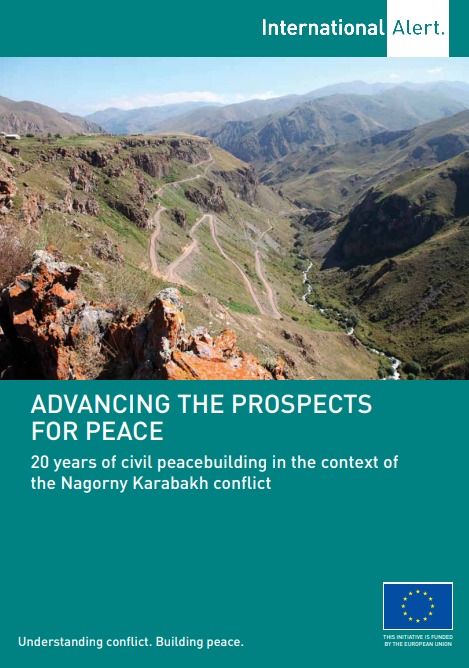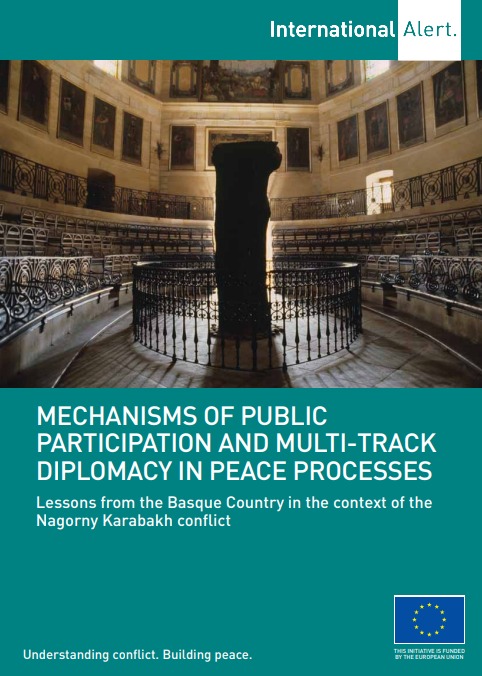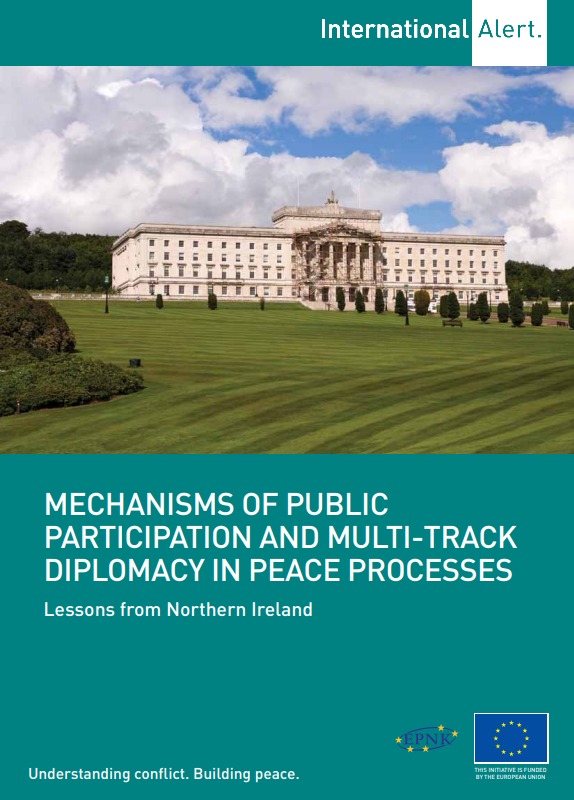About the Project
The comparative learning unit was a network of academics, political experts and civil society representatives, brought together by International Alert to analyse other conflicts and share the lessons relevant to the Nagorny Karabakh context. The aim was to transform extremist discourse, based on assumptions into a healthy debate.
How did the CLU Work
Members of the CLU engaged at different levels and at different times – participating in meetings, study visits, research activities and local events – depending on the topic under discussion. Emphasis was placed on inviting younger analysts in order to expand the narrow pool of civil society participants in peacebuilding forums.
Activities included research and joint visits to other conflict areas such as Northern Ireland, the Philippines, Indonesia, and the Basque Country. The initiative was designed to inform CLU members of approaches taken to build peace, restore inter-communal confidence and reconcile affected communities.
Members visited London, the Republic of Ireland and Belfast to research the Northern Ireland context. It was not possible to visit the Basque Country but desk research was carried out remotely with the help of phone and Skype calls with a range of local experts, journalists and academics from Madrid and Bilbao.
This gave participants the chance to study other conflicts, interact with each other and find fresh perspectives on approaches to resolving the conflict. They could then take these into their own societies for broader discussion.
There was a consensus among the CLU members that a balanced representation of members from all sides of the conflict helped the group to achieve common understanding, establish trust, and ensure that all points of view were represented.
Achievements and influence
By December 2014, the CLU had produced three research reports. ‘Advancing the Prospects for Peace – 20 years of civil peace building in the context of the Nagorny Karabakh conflict’ was a collaborative effort co-authored by people engaged in the peace-building process over that period. The other reports covered the Basque Country and Northern Ireland conflict contexts.
This was more than an academic exercise: the most significant aspect of the project was to take the findings to the grassroots as a starting point for discussion. The CLU held many local events in Azerbaijan, Armenia as well as Nagorny Karabakh, reaching over 1,000 people. Some were public debates aimed at a specific audience such as nationalist politicians, peace-builders and students. Other events had mixed audiences, including people from the diaspora.
Due to transparency and publicity of the project the CLU became seen as a locally legitimate public outreach mechanism, This ensured they were able to engage a wide range of social groups: from political decision-makers and analysts to to marginalised and hard-to-reach communities.
The EU delegations in Yerevan and Baku invited the CLU experts to attend meetings with Minsk Group Co-Chair members. They met the EU special representative for South Caucasus, Herbert Salber, and the 28-member EU Expert Group on Eastern Europe.
Constraints in the official mediation process (led by the Minsk Group) meant that the CLU publications have not directly influenced the Minsk Group members. But they were useful ‘calling cards’ for civil society representatives trying to establish contact with the Minsk Group. The CLU was an effective way to reach one layer below the Track 1.5 participants (both officials and civil society representatives who are engaged in the peace process) across the conflict divide and forced mid-career political activists and civil servants to see conflict from a fresh perspective.
Photograpgh by Vaghinak Gazaryan



